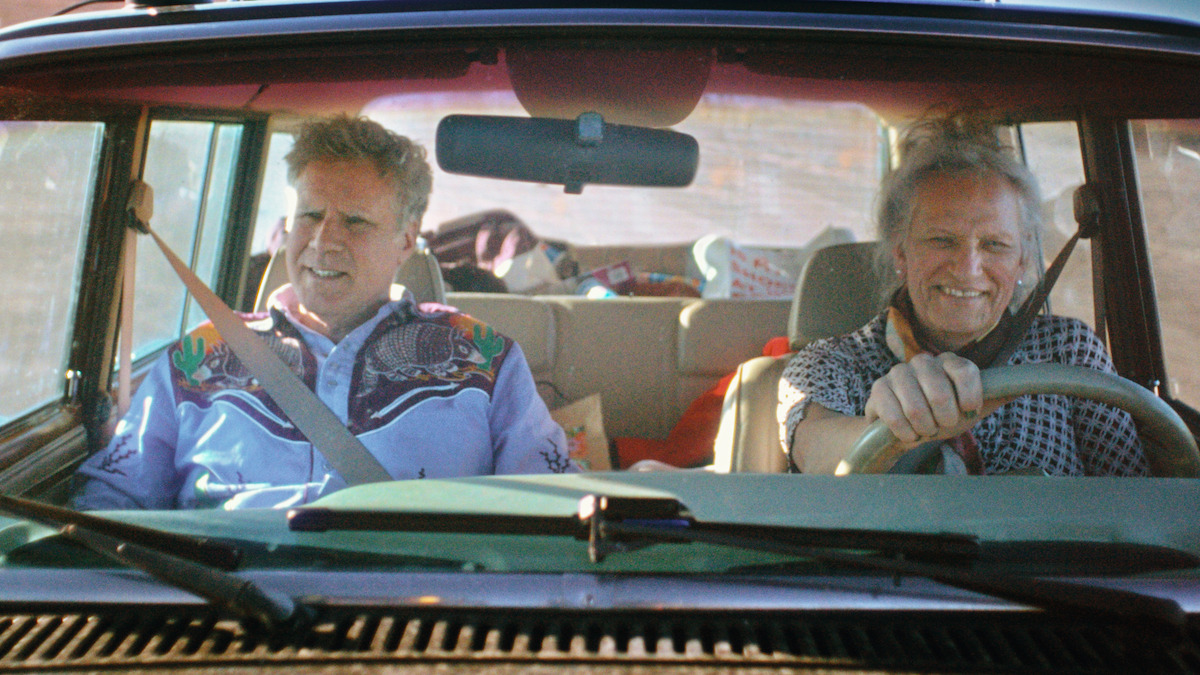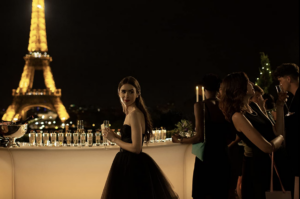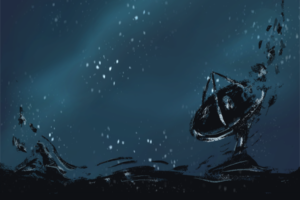There is something wonderfully whimsical about road trips: collecting a few friends, a sparsely connected route with a few notable landmarks and free couches to crash on, and the ideal gas station snacks. In Will & Harper (2024), the collection is a pair of star-studded friends, starting from their roots at Saturday Night Live in New York to end on the coast of California, and almost every flavor of Pringles.
Will & Harper, which recently debuted on Netflix after its initial showcasing at Sundance Film Festival in January, follows the real life friendship of Will Ferrell and Harper Steele as they road trip across the country. The drive is set against the backdrop of Steele’s coming-out as a transgender woman: the trip is one of reflection and bonding.
The documentary centers around contemplative conversation and shared experience, just like any good road trip. The film’s effectiveness comes from its strategic ability to function through juxtaposition, finding rhythm in the contrast. Deep ruminations are beautifully cut with jovial humor, with the pair able to seamlessly transition from reflecting on Steele’s coming-out to busting out classic one-liners. They meet with Steele’s children before embarking on the trip, discuss the nature of their family dynamics and the importance of family, all while Ferrell orders an absurd amount of tzatziki for the table. “Do you think you’ve become a worse driver now that you’re a woman?” Ferrell jokes after an otherwise profound conversation about the implications of Steele’s decision to come out via email to her loved ones. Also present throughout is an impassioned debate over Steele’s love of Natty Lights, a drink that frequently accompanies these moments of reflection.
This duo is funny by trade. For those familiar with Will Ferrell’s filmography and Saturday Night Live references, it is easy to jump into the duo’s loving banter, while also unexpectedly discovering the strength of their friendship in the face of change.
Beyond an excuse to spend time together, the road trip is one of empowerment and reclamation: “I will see the country that I love as myself,” Steele declares. Uncertainty has been a constant for Steele since her transition, and she continues to face her fears on this journey across the country. Though Steele must eventually take on these challenges alone, for the time being, Ferrell is a constant companion as she confronts them, acting as a truly appreciated source of comfort. As they stop along the way, Steele is concerned about feeling welcome against the changing political backgrounds of the American frontier. She is, however, often unexpectedly welcomed, such as when she is quickly accepted into conversation at a bar in Oklahoma that was an initial source of concern. However, she also faces controversy, including being subjected to a social media outburst after visiting a famous Texas restaurant that garnered negative attention.
Despite rough patches, both the storytelling and structure of the film show an immense amount of care on the part of the writers and producers. Much more than just a linear account of a cross-country road trip, time is unexpectedly spent reliving delicate moments: rekindling love for unicycling, sitting in a Walmart parking lot, and shopping at thrift stores. There are also thoughtfully developed comedic bits sprinkled in with masterful intention and precision. The two bicker over decades old debates, consistently yearn for a theme song, and for whatever reason, Ferrell really wants to go to a Dunkin’ Donuts. The vast American roads that the two traverse paint an iconic image, with strategically framed shots putting this incredible adventure into specific context and adding artistic perspective.
The film’s resonance also comes in large part from the casual nature of the interactions. While categorically a documentary, the charisma between the two friends pumps life into the traditional sterilization of the genre. They disprove any expectations of this classification within the first few seconds, establishing early on that the film will leave the viewer with more than just information. The primary setting of the film is Steele’s Jeep, a relatable and stripped down place for candid conversation to happen. Will & Harper is evidently not the first of its kind; road trips are a frequently chosen movie setting for a reason. However, unlike others of its type, the meaningful undercurrent of what it means to be a trans woman in America makes this film transcend plot and genre boundaries to pluck at the audience’s heartstrings.
This documentary also uniquely opens up space for highly-political topics to be discussed within the comfortable intimacy of friendship. In light of a volatile political atmosphere and in the midst of an election year, Will & Harper confronts the reality of being transgender in America on such a personal level that it feels human instead of starchily political. There is a certain level of vulnerability that is only attainable in conversation between friends. “I’m not really afraid of these people, I am afraid of hating myself,” Steele admits as they head westwards.
Ultimately, Will & Harper is a film for everyone. It is humorous while caring, a documentary and a comedy, and a tale of constant friendship and empowering change.






